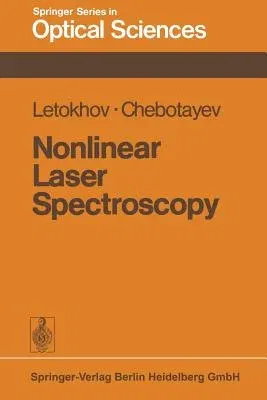V S Letokhov
(Author)Nonlinear Laser Spectroscopy (Softcover Reprint of the Original 1st 1977)Paperback - Softcover Reprint of the Original 1st 1977, 18 April 2014

Qty
1
Turbo
Ships in 2 - 3 days
In Stock
Free Delivery
Cash on Delivery
15 Days
Free Returns
Secure Checkout
Part of Series
Springer Optical Sciences
Part of Series
Springer Series in Optical Sciences
Print Length
466 pages
Language
English
Publisher
Springer
Date Published
18 Apr 2014
ISBN-10
366213487X
ISBN-13
9783662134870
Description
Product Details
Authors:
Book Edition:
Softcover Reprint of the Original 1st 1977
Book Format:
Paperback
Country of Origin:
NL
Date Published:
18 April 2014
Dimensions:
22.86 x
15.24 x
2.49 cm
ISBN-10:
366213487X
ISBN-13:
9783662134870
Language:
English
Location:
Berlin, Heidelberg
Pages:
466
Publisher:
Weight:
644.1 gm

